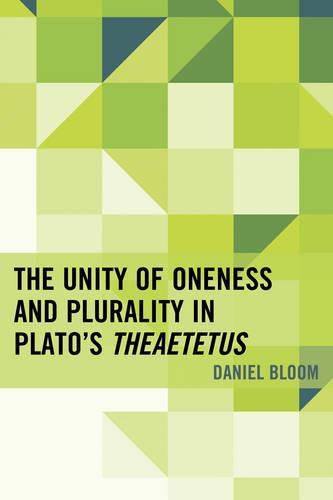The Unity of Oneness and Plurality in Plato’s Theaetetus offers a reading of the Theaetetus that shows how the characters’ failure to give an acceptable account (i.e a logos) of knowledge is really a success; the failure being a necessary result of the dialogue’s implicit proof that there can never be a complete logos of knowledge. The proof of the incompatibility of knowledge and logos rests on the recognition that knowledge is always of what is, and hence is always of what is one, while logos is inherently multiple. Thus, any attempt to give a logos of what is known amounts to turning what is one into something multiple, and hence, that which is expressed by any logos must be other than that which is known. In this way The Unity of Oneness and Plurality in Plato’s Theaetetus provides its readers with developed sketches of both a Platonic epistemology, and a Platonic ontology.
An account of the incompleteness of all accounts is, obviously, a very slippery undertaking. Plato’s mastery of his craft is on full display in the dialogue. Besides offering a reading of Plato’s epistemology and ontology, The Unity of Oneness and Plurality in Plato’s Theaetetus investigates the insights and difficulties that arise from a close reading of the dialogue through a sustained analysis that mirrors the movement of the dialogue, offering a commentary on each of the primary sections, and showing how these sections fit together to supply an engaged reader with a unified whole.





